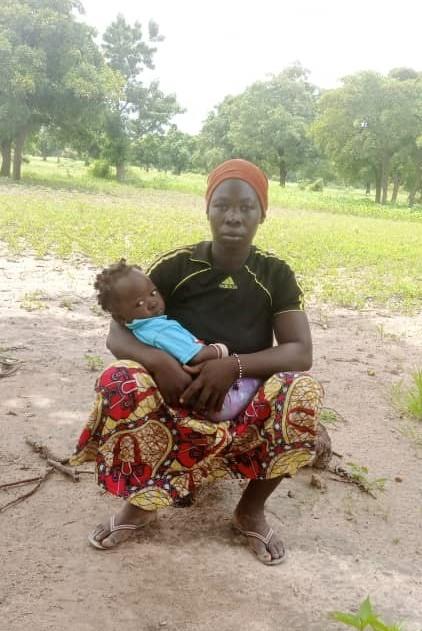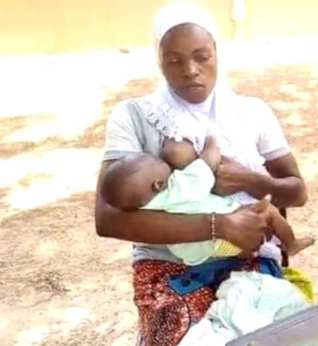The Country Health Information Systems and Data Use project (CHISU) is implementing breastfeeding breaks during training in Burkina Faso, starting with a recent workshop on event-based surveillance for community agents from the Ministries of Health, Environment and Animal Resources to identify potential public health threats at the community level.
The workshop was held in the Sabou Department of Boulkiemdé Province, central western Burkina Faso. The breaks initiative, which aims to ensure that breastfeeding women can be in contact with their babies while advancing their professional knowledge, was welcomed by participants, particularly two community health workers from nearby villages.
“I loved this approach and thank the organizers for this idea,” said Kouanda Bibata, one of the women who benefited from the pause. “Before the break, I could only listen to my baby crying. Once I came back, I could pay more attention to what was being taught and had more concentration to follow the training. I was really relieved.”

Ms. Bibata, who was able to nurse her two-month old baby and still take an active part in the training, has been a community health worker for about six years in the Center for Health and Social Promotion in Nariou, a small town in the Sabou Department.
During the training, organized with CHISU technical and financial support, a break was organized for the participants who were lactating. The pause lasted for about 30 minutes and breastfeeding women were allowed to leave 30 minutes before other participants so that the babies were not disturbed by the event’s noise. During the mothers’ absence, trainers used the break time to revisit modules and discuss material already covered.
Breastfeeding breaks, part of a CHISU pledge to integrate gender in health information systems strengthening, complement a global call to action, offering mothers a chance to establish physical and emotional contact with their babies.
“This is such a wonderful demonstration of CHISU’s commitment to integrate gender in all our interventions, which reinforces countries’ capacity to collect, manage and use high-quality data,” said Stephanie Watson-Grant, CHISU Deputy Project Director. “It is also a very tangible illustration that including gender in health information system strengthening goes beyond generating gender disaggregated data,” she added.

Breastfeeding breaks:
- Allow for equitable participation in training.
- Help promote exclusive breastfeeding.
- Improve the health of mothers and their babies.
“Through this initiative, CHISU is giving a concrete example of gender considerations as part of project implementation in Burkina Faso and beyond,” said Dr. Rahim Kebe, CHISU Resident Advisor. “These mothers’ testimonies are encouraging as we move forward to support digital transformation in the country. We are proud that our interventions can complement our partners’ efforts as part of USAID support to improve child and maternal health in Burkina Faso.”
Learn more about CHISU work in Burkina Faso.